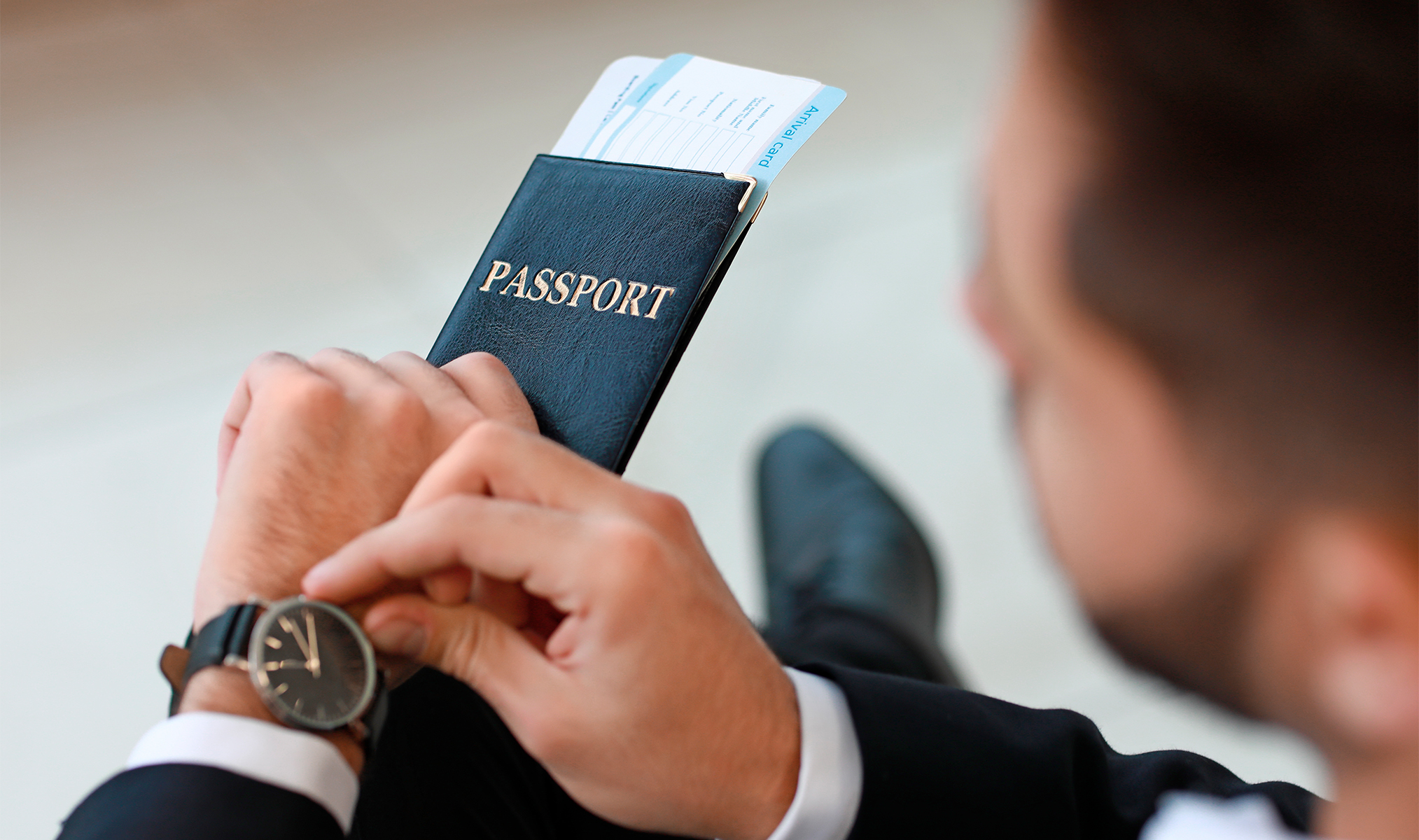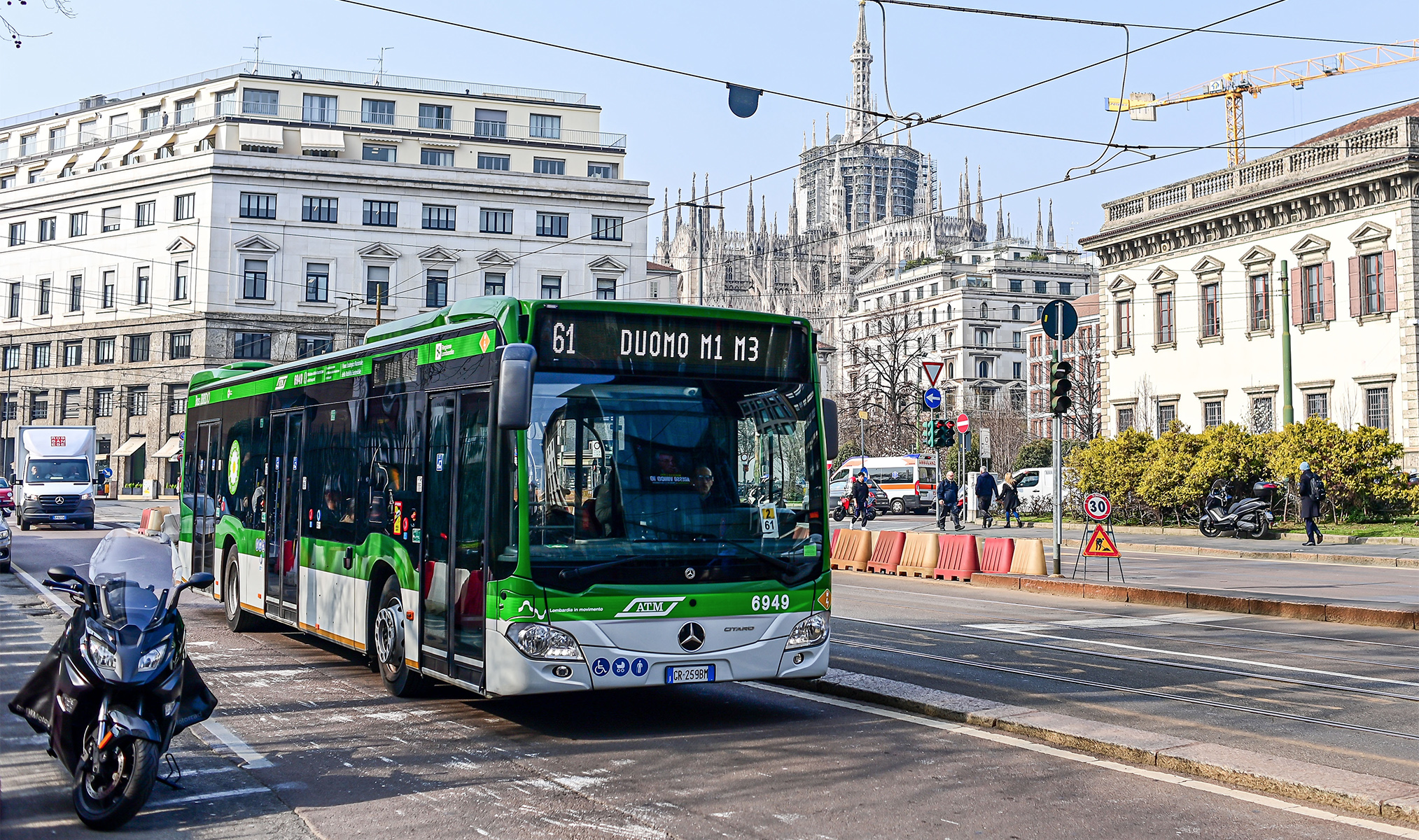Contents
- Passport and visa essentials
- Practical tips for preparing corporate travel to Italy
- 3 travel insurance & healthcare considerations
- What to expect upon arrival in Italy
Passport and visa essentials
Anytime you are conducting business in Italy, it is important you have all the documents and permissions in order. Understanding the specific requirements before traveling ensures you have a hassle-free journey. In this section, we will detail the passport requirements for entering Italy and explain when a visa may be necessary.
The Schengen Area rule
Italy is a member of the Schengen Area, which means that most corporate travelers only need to worry about the 90/180-day rule when it comes to short-term visits. If a business traveler is a citizen of a country that enjoys visa-free access, they can enter Italy for business purposes for up to 90 days within a 180-day period.
However, it is important to note that even under the visa waiver program, their passport must be valid for at least three months beyond their intended departure from the Schengen Area.
For more detailed and official guidelines, consult the Visto per l’Italia (Esteri) website.

Their passport must be valid for at least three months beyond their intended departure from the Schengen Area.
Photo: Pixel-Shot / Shutterstock.com
Understanding national vs. business visas
If a business traveler’s stay exceeds 90 days, they must apply for additional documentation such as a business visa. These visas differ from a standard tourist visa and are required to conduct business on Italian land. Keep in mind, when applying for a business visa, business travelers will likely need to provide evidence of their company’s legitimacy, a formal invitation from an Italian business counterpart, and sometimes proof of accommodation.
Without proper documentation, visa applications may be denied. If travelers fail to adhere to the immigration laws, legal action could be pursued against them and their company. That said, following all guidelines and regulations is critical.
What qualifies as work-related activities?
Another important piece of corporate travel in another country is clarifying what qualifies as work-related activities and what does not. In Italy specifically, activities considered “work-related” include (but are not limited to) attending meetings and conferences, conducting brief negotiations, and touring potential business opportunities. These activities are permissible with a Schengen Area Visa. This is as long as the activities are conducted for no more than 90 days.
However, if travelers plan to participate in activities that resemble employment such as managing local operations or executing contracts, they might be required to secure a work permit or a specific business visa. With that said, always ensure your team’s intended business activities are in line with their visa type to avoid any legal repercussions.

In Italy specifically, activities considered “work-related” include attending meetings and conferences.
Photo: Ground Picture / Shutterstock.com
Digital & data protection requirements
Along with passport and visa considerations, business professionals venturing to Italy must understand how to comply with digital security measures. According to the Privacy Shield – Italy Business Travel guidelines (which can be used as a resource), companies must be aware of how data collected at borders or by local agencies is managed.
These protection efforts not only secure the privacy of you and your employees/coworkers but also ensure that your business aligns with Italy’s legal standards. Businesses can consult the U.K. Foreign Travel Advice for Italy to receive further guidance on the safety measures and security updates relevant to international travelers.
Practical tips for preparing corporate travel to Italy
When traveling to Italy for corporate purposes, it is important to be properly prepared. Whether you are going as a single executive or sending an entire team, following the checklist can help ensure a smooth travel experience.
Pre-trip preparation
Before your team even departs on a business trip to Italy, ensure all documents are in order. These are the documents we referred to earlier:
- A valid passport with at least three months of remaining validity beyond a planned departure date.
- The appropriate visa or business permit if a stay exceeds 90 days or if planned activities extend beyond conventional business meetings.
- An official invitation or letter of introduction from an Italian counterpart.
- Evidence of travel insurance that meets international and Italian requirements.
Having these documents up to date, in order, and easily accessible will ensure a smooth transition through security and customs upon arrival.

Before your team even departs on a business trip to Italy, ensure all documents are in order.
Photo: MAYA LAB / Shutterstock.com
3 travel insurance & healthcare considerations
While travel insurance isn’t legally required in Italy, it’s strongly recommended for corporate travelers. The following are a few key coverage considerations that can help ease worries in the event of a cancellation or an illness/incident during a corporate trip:
1. Complete medical coverage
The healthcare system in Italy is top tier however, accessing these services as a non-resident can sometimes be a challenge and can add up quickly in terms of cost. For these reasons, it is wise to purchase a medical policy that will cover emergency treatment, hospitalization, and even medical evacuations while traveling, if needed. These policies will ensure business travelers are protected while overseas and could save thousands on treatment costs.
2. Trip interruption and cancellation
We can always plan but we can’t always guarantee those plans will work out. Choosing a policy to cover unexpected changes such as trip cancellations, delays, and interruptions can protect both your team’s personal and professional investment when traveling. These insurance policies are designed to provide peace of mind and protect travel funds in case plans change unexpectedly.
3. Coverage for business activities
Finally, if business travelers’ itinerary includes off-site meetings, site visits, or other business events, make sure that their insurance policy will accommodate these activities. Depending on the provider and the policy itself, some travel insurance policies require add-ons specifically for corporate travelers. If required, these add-ons are critical to ensure full coverage while traveling.

While travel insurance isn’t legally required in Italy, it’s strongly recommended for corporate travelers.
Photo: create jobs 51 / Shutterstock.com
What to expect upon arrival in Italy
Customs and immigration processes
Italian customs officers are well-versed in the documentation process into Italy so having your paperwork organized and ready to be presented is important. As long as travelers stay organized, the process through customs is fairly straight forward. They may be subjected to a few questions about their business plans, accommodation, and flights back. This information is standard and helps the officer understand travelers’ plans and proof that they won’t overstay your visa(s).
Local transportation & corporate logistics
Once you have cleared customs, transportation is the next step. Italy has very reliable public transportation for an affordable way of commuting. There are also endless rental car and taxi services if convenience and full flexibility are your priority. For busy executives, pre-arranged transport through a trusted local service can even further simplify your team’s schedule.

Italy has very reliable public transportation for an affordable way of commuting.
Photo: pcruciatti / Shutterstock.com
Handling unexpected challenges
Sometimes, even with the most meticulous planning, unexpected hurdles can arise. Whether it’s an issue with a visa or a sudden change in safety, a contingency plan is a priority. You can guarantee your team’s preparedness by keeping emergency contacts handy. This includes the local embassy, consulate, or a travel liaison. These individuals can help guide business travelers to safety and ensure all the paperwork is complete and up-to-date.
Ready for a stress-free business trip?
Navigating Italy’s intricate entry requirements and preparing for the unexpected is essential for any corporate traveler. With careful planning and adherence to Italy’s guidelines, you can focus on building valuable connections and exploring new business opportunities in one of Europe’s most dynamic markets.
Roundtrip is here to simplify every aspect of corporate travel. Save time and money by booking any travel service in less than a minute with our user-friendly interface—whether it’s airline tickets, transfers, car rentals, or a room in one of our 2.7 million hotels in 220 countries.
Book your next Italy business trip with Roundtrip and take the stress out of corporate travel!
Photo by Chris Czermak on Unsplash



